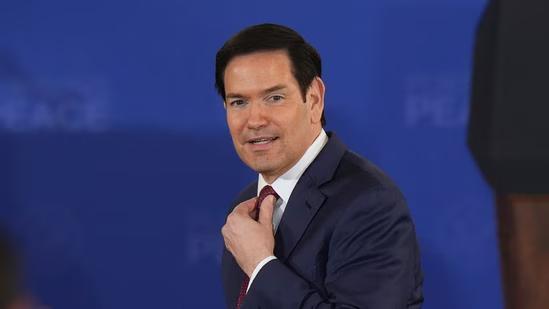
We Keep an Eye on India & Pak Situation Every Single Day: US
The ongoing tensions between India and Pakistan have been a subject of concern for the international community, and the latest development comes from the United States. US Secretary of State Marco Rubio recently made a statement, revealing that the US “keeps an eye” on the situation between the two neighboring countries “every single day”. This statement has sparked interest and raised questions about the US’s role in resolving the Indo-Pak conflict.
Rubio’s statement was made in the context of the ongoing conflict between Russia and Ukraine. He emphasized that the US is not aiming for a permanent ceasefire between India and Pakistan, rather, they are striving for a peace deal. This statement suggests that the US is willing to take a more active role in resolving the conflict, but what does this mean for the future of the region?
To understand the significance of Rubio’s statement, it is essential to delve into the current situation between India and Pakistan. The two countries have a long history of conflict, with the most recent being the escalation of tensions along the Line of Control (LoC) in Kashmir. The situation has been volatile, with both sides exchanging fire and accusing each other of aggression.
The US has a complex relationship with both India and Pakistan, with ties that date back to the Cold War era. India is a key ally of the US in the region, and the two countries have a strong partnership in areas such as trade, defense, and security. Pakistan, on the other hand, has historically been a key player in the US’s war on terror, with the US providing significant military aid to the country.
However, in recent years, the relationship between the US and Pakistan has been strained, with the US accusing Pakistan of providing safe haven to terrorist groups. This has led to a significant reduction in military aid to Pakistan, and the country has been struggling to maintain its economy.
In the context of the India-Pak conflict, the US has walked a fine line, calling for restraint from both sides while also emphasizing the importance of dialogue and diplomacy. The US has also been critical of Pakistan’s role in the conflict, accusing the country of supporting terrorist groups that target India.
Rubio’s statement suggests that the US is willing to take a more active role in resolving the conflict, but what does this mean for the future of the region? The US has a significant presence in the region, with military bases in India and Pakistan, and a strong partnership with both countries.
One possible scenario is that the US could use its influence to facilitate dialogue between India and Pakistan. The US has a reputation for being a neutral broker in international conflicts, and both India and Pakistan have shown willingness to engage in dialogue with the US in the past.
Another possibility is that the US could use its military presence in the region to deter further escalation of the conflict. The US has a significant military presence in the region, with bases in India and Pakistan, and the country has shown willingness to use its military might to protect its interests.
However, there are also risks associated with the US taking a more active role in the conflict. The US has a history of intervening in regional conflicts, but this has often led to unintended consequences. The US’s involvement in the Middle East, for example, has been widely criticized for its role in destabilizing the region.
In conclusion, Rubio’s statement suggests that the US is willing to take a more active role in resolving the India-Pak conflict. However, the nature of this role is still unclear, and it remains to be seen how the US will approach the situation. As the conflict continues to escalate, it is essential for the US to carefully consider its approach, taking into account the complex history and politics of the region.



